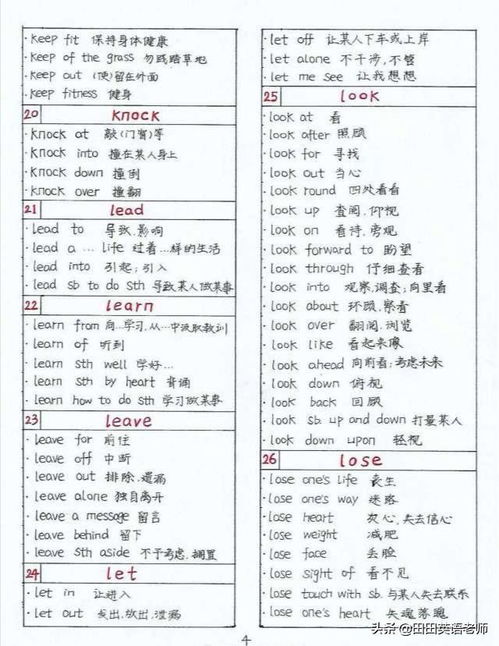一、辨析方法
1. 区分及物与不及物

及物动词词组(后接宾语):get over (克服), get through (完成), get rid of (摆脱)
不及物动词词组(无宾语):get up (起床), get away (逃离), get along (相处)
2. 按意义分类
开始/动作:get started (开始), get going (出发)
获得/接收:get a job (得到工作), get a message (收到信息)
理解/领悟:get the point (理解要点), get the joke (听懂笑话)
到达/变化:get home (到家), get better (好转)
情感/状态:get angry (生气), get tired (感到累)
3. 注意多义词组
get over: 克服(困难)/ 从疾病中恢复
She finally got over her fear of public speaking.
It took me a week to get over the flu.
get through: 完成(任务)/ 通过(考试)/ 接通电话
We need to get through this report by Friday.
Did you get through the interview?
二、常见易混词组对比
1. get up vs. wake up
get up: 强调起床的动作(物理起身)
I got up at 7 AM and made breakfast.
wake up: 强调从睡眠中醒来(意识清醒)
I woke up suddenly when the alarm rang.
2. get off vs. get on
get off: 下车/离开(交通工具或表面)
Please get off the bus at the next stop.
get on: 上车/进展顺利
She got on the train just in time.
How are you getting on with your new job?
3. get back vs. give back
get back: 返回/取回某物
I need to get back my book from Tom.
give back: 归还某物
Don’t forget to give back the pen you borrowed.
三、写作框架示例
题目: Compare the usage of "get through" and "get over".
结构:
1. 定义:简要说明两个词组的核心含义。
2. 用法对比:
Get through 强调“完成困难任务”或“度过艰难时期”。
Get over 强调“克服情感障碍”或“身体康复”。
3. 例句分析:
She got through the exam by studying hard.
He couldn’t get over the loss of his pet.
4. 常见错误:
错误:I need to get over this project.(应改为 get through)
5. 总结:根据语境选择合适词组。
四、注意事项
1. 结合语境:许多词组含义随上下文变化(如 get by 可指“勉强维持”或“通过考试”)。
2. 积累搭配:注意固定搭配(如 get in touch with 联系,get cold feet 临阵退缩)。
3. 避免直译:部分词组需整体理解(如 get the hang of ≈ 掌握窍门)。
通过以上方法系统梳理,能更清晰地辨析 "get" 动词词组的用法差异。建议搭配词典例句和实际语境练习加深记忆。


